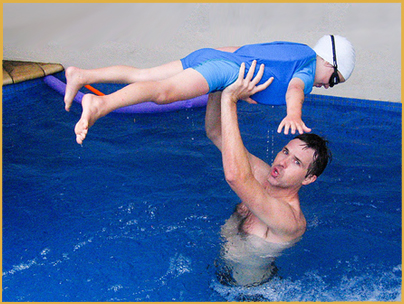
Health writer Amanda Gardner recently wrote about a report completed by the Robert Wood Johnson Foundation and the Trust for America’s Health. As Gardner reminds us in Business Week,
Obesity is one of the biggest public health crises in the country. Rising rates of obesity over past decades is one of the major factors behind skyrocketing health care costs in the U.S., one-quarter of which are related to obesity.
Speaking for the Robert Wood Johnson Foundation, Dr. James Marks told the reporter of his optimism regarding at least three developments in the effort to end childhood obesity. He is enthusiastic about the Let’s Move! program, sponsored by first lady Michelle Obama. He also noted that health care measures have expanded to include support for obesity-related projects. Next, he mentioned the restrictions that many communities have set up to control the quality of food sold by school cafeterias and vending machines.
The Robert Wood Johnson Foundation believes that physical activity is very important for individuals, families and society in general. It encourages the improvement of environments so that walking and bicycling are viable alternatives to passive transportation. Another of its goals is to improve access to affordable healthy foods in neighborhoods characterized as “food deserts,” so kids have ample opportunity to consume healthy, nutritious foods.
The Foundation wants improved physical education facilities in schools, and better parks and playgrounds where families can have fun doing physical activities. This goes along with the wisdom we have all followed for years. We have all either lost weight through exercise, or we know somebody who did.
But now, we hear the strange news about recent research from Britain. The findings indicate that a sedentary lifestyle isn’t really a causative factor in childhood obesity, but the other way around. Kids don’t get fat because they are inactive, they’re inactive because they’re fat.
If that turns out to be true, we’ve been fooling ourselves all along, with our school phys-ed programs and our gyms and workout classes. In which case, the soft approach, the family bonding and community building efforts would be in vain if looked at on a purely “exercise equals weight loss” basis. But there is more to it.
Some might ask, does the warm and fuzzy approach accomplish anything? Some might answer that, yes, it does. Even if exercise can’t be proven to help anyone shed a single ounce, such programs accomplish a lot of good. For one thing, if you’re busy pedaling a bicycle, you’re probably not eating at the same time.
Moreover, physical activity reduces diabetes risk, lowers blood pressure, and just generally increases physical and psychological health. Anything that gets family members happily interacting is a good thing. We know beyond a doubt that overeating comes from emotional issues, a lot of them centering around parents. Anything that encourages a family to function better is a plus.
A case could be made that resources might be more pragmatically applied. For instance, if the food addiction paradigm were taken seriously, that would mean seeking the expertise of more addiction medicine specialists. For instance, if the question could be settled, of whether legislation about school snack machines really does any good, that would be a real accomplishment.
There’s no reason why all these things can’t happen. For some people, regular exercise helps them stay slim. For others, it doesn’t. There can be many programs for many different needs. Transdisciplinary is definitely the way to go. The only thing is, we might want to pay some attention to what the kids themselves say. For instance, in a Weigh2Rock poll, 67 percent of the responding young people said that information about healthy eating does not help them lose weight. Just sayin’.
The stated goal of the RWJF, to facilitate and support opportunities for active living, is certainly a worthy one. Public policy changes can bring about improvement to neighborhoods and transportation systems, parks and open spaces, which is all to the good. The Let’s Move! initiative is ambitious and many-pronged. With such strong forces as these at work, we look forward to seeing a healthier America.
Your responses and feedback are welcome!
Source: “Obesity Rates Jump in 28 States, Report Shows,” Business Week, 06/29/10
Source: “What Is Active Living?,” ActiveLivingResearch.org
Image by jemsweb, used under its Creative Commons license.

 FAQs and Media Requests:
FAQs and Media Requests: 











